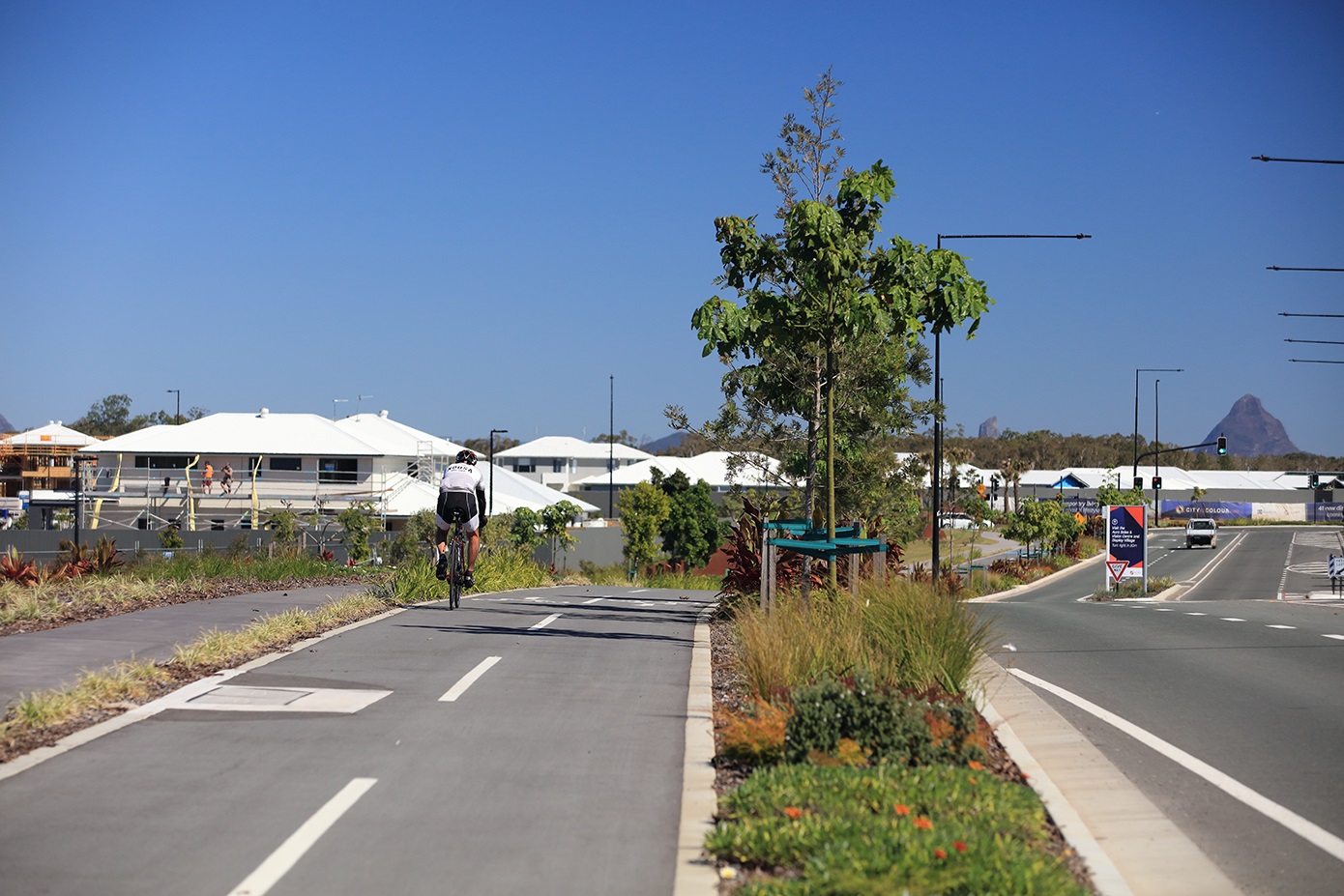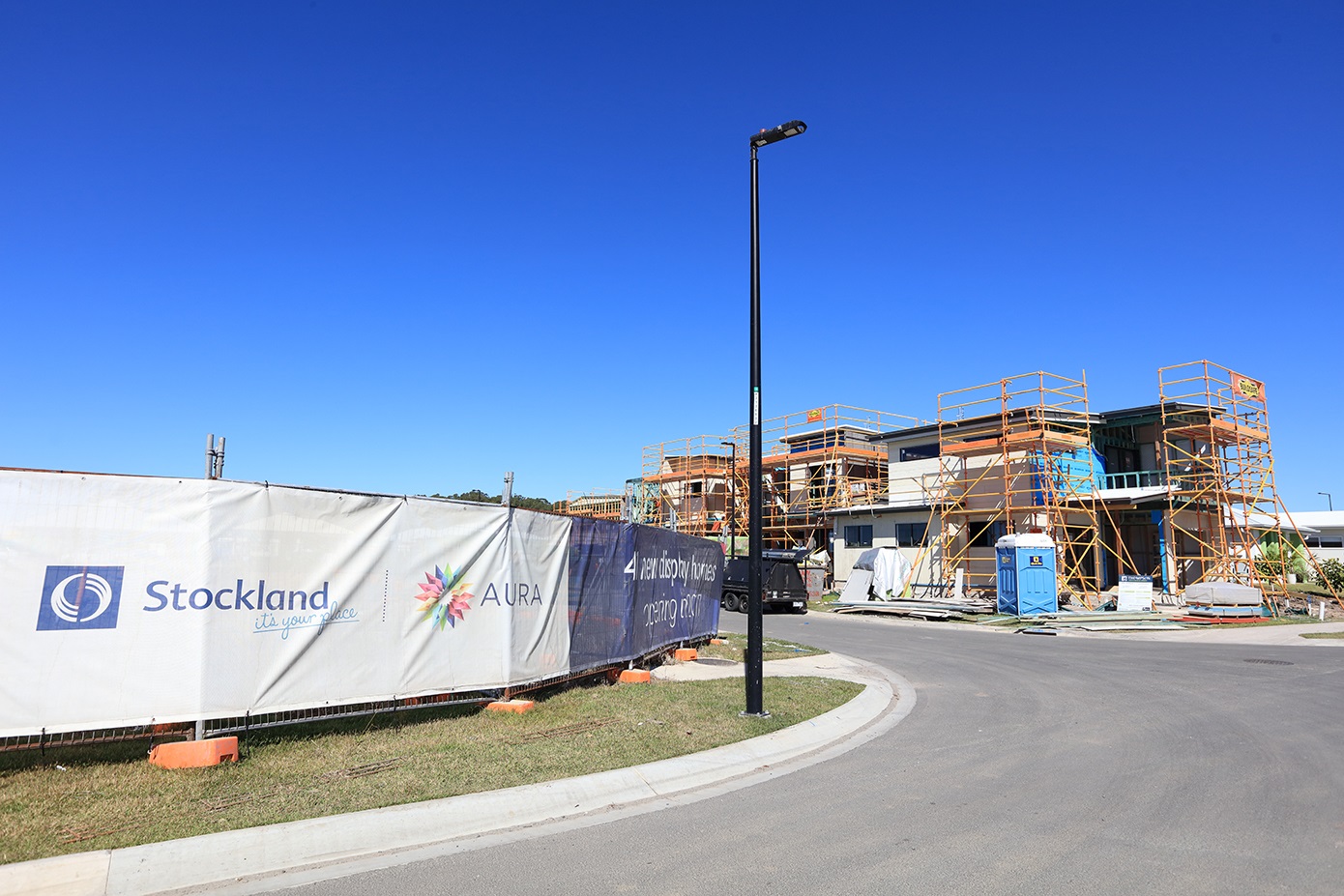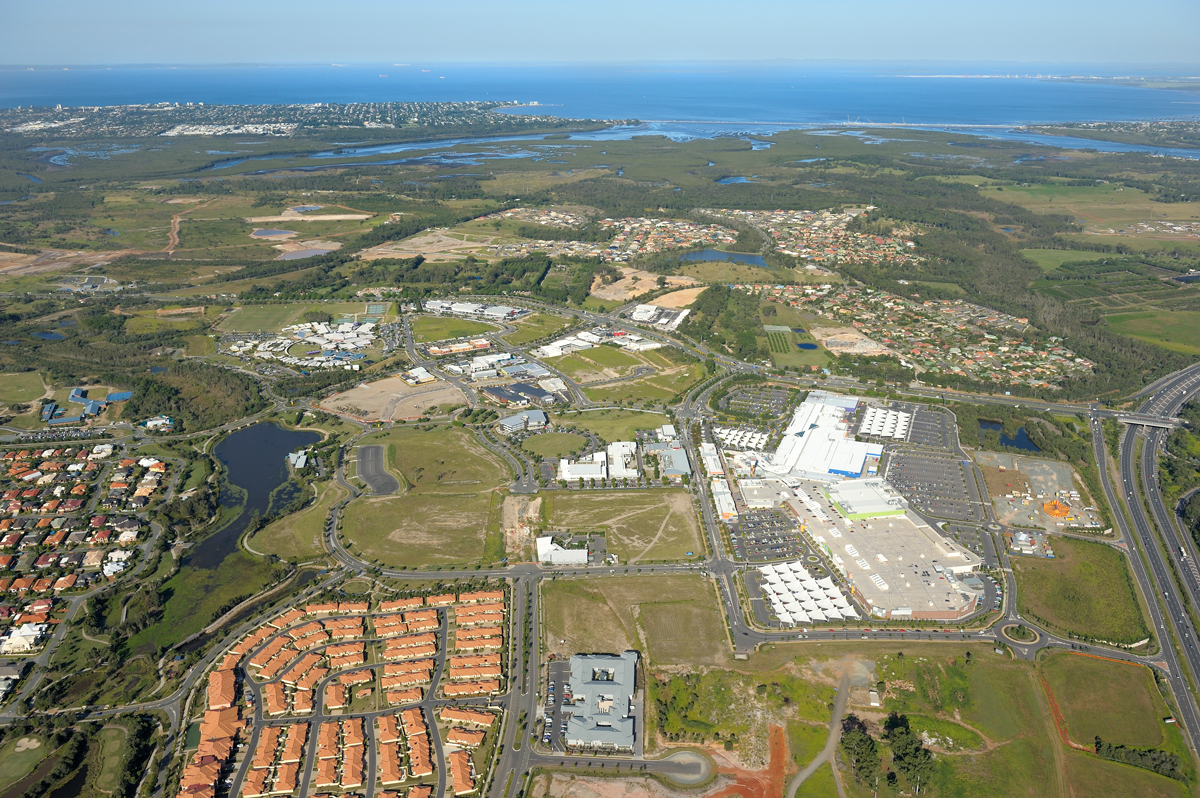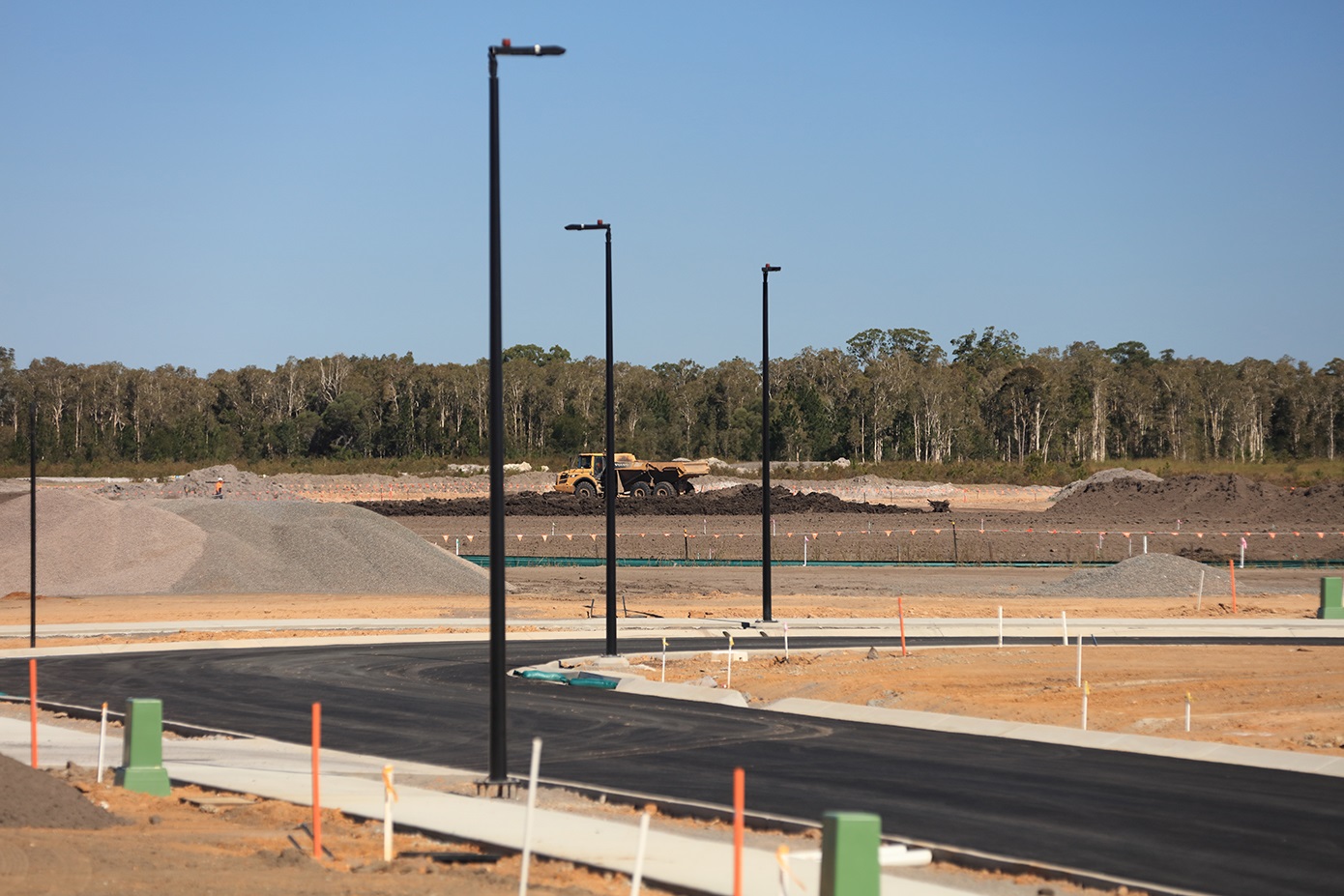Application process
Approvals for subdivision projects or extensions can be complex because they typically require modifications to the existing water and sewerage mains.
You need to apply for:
- A connection approval. This step reserves network capacity for your project.
- Network works approval. In this step we assess the proposed design for construction of any network infrastructure.
These can be submitted and approved as single application, referred to as a combined connection application and network works application, or separately if your detailed network designs are not ready.
A Registered Certifier from our Accreditation Register helps you to achieve approvals by preparing, assessing and submitting your applications to us for approval.
Quick links
Before applying to connect:
Because subdivision projects can be complex, we recommend requesting either a Certification Advice Notice (CAN) or a Services Advice Notice (SAN) before starting the connection application.
A CAN is for a certifier and SAN is for an applicant. Both these result in ‘advice’, but they are submitted by different parties. The CAN is specific to a certifier asking a question as a certifier.
This free service saves you time and cost by providing upfront advice that helps you understand what’s involved in applying to connect, and what supporting information is required to lodge a successful application.
Certification Advice Notice (online form)
Services Advice Notice (online form)


What you need to get started:
To submit your application for a residential sub-division with single land release, you will need:
- the land owner’s consent
- consent from owners of any nearby property affected by the proposed work, e.g. if access is required
- a street plan that adequately locates the property for this connection
- subdivision or development plan (if available)
- network demand assessment.
If your development requires work on the water or sewer mains, you may also need:
- network works design calculations
- network works design drawings
- networks analysis reports for water and sewerage (if required).
For substantial developments that place extra demand on our networks, you may need to supply additional information so we can assess the impact your development will have.
This includes:
- supporting report on the proposed development
- servicing strategies for the development
- networks analysis reports
- a subdivision development staging plan
- a network staging plan (master plan).
Before applying, you’ll need to consider if approval is required to build or carry out work near Unitywater’s infrastructure.
5 phases of connecting to our network:
If your residential subdivision involves extensions or modifications to our mains infrastructure, there are 5 approval phases to work through before handing over the assets to Unitywater to maintain: Planning, Application, Construction, Connection and Final Acceptance.
If network extensions or modifications aren’t required, the Construction and Final Acceptance phases do not apply.
A Registered Certifier helps you navigate each of these phases and get your project to market quicker.
For connection applications they assist with:
- Preparing and submitting your connection application
- Identifying allowable yield for the site
- Finding any existing approvals on the site or on adjacent sites
- Determining whether the existing water and sewer network can accommodate your development, or if additional infrastructure is required
- Providing design advice on Unitywater-approved allowable servicing solutions
- Calculating the demand your development imposes on our network
- Calculating Infrastructure Charges payable with development
- Preparing your Certificate of Completion, for Unitywater’s approval.
If network works are required, they also help with:
- Preparing and submitting your network works application
- Conducting an on-site pre-start meeting on our behalf
- Ensuring your contractor understands Unitywater’s requirements
- Flagging and fixing any issues that could delay your approval
- Completing final inspections
- Conducting final testing of constructed works
- Arranging live connections
- Managing handover of network infrastructure to Unitywater.
Once you choose an Accredited Entity from our Accreditation Register, they will allocate the right type of certifier to best assist with your project.
In this phase you will be planning your development, preparing plans and submitting documents to council and Unitywater for approval.
We recommend requesting a Certification Advice Notice (CAN) or a Services Advice Notice (SAN) before you start the connection application. This free service guides you on how to submit a complete application and ensures your application is assessed in the shortest time possible.
A CAN is for a certifier and SAN is for an applicant. Both these result in ‘advice’, but they are submitted by different parties. The CAN is specific to a certifier asking a question as a certifier.
This free service saves you time and cost by providing upfront advice that helps you understand what’s involved in applying to connect, and what supporting information is required to lodge a successful application.
What you need
- Pre-lodgement advice from council, if received
- Approvals from council, if received
- Development plans/designs.
In this phase, your certifier submits your documentation and plans for your connection and network works approvals. The network works approval is only necessary if extensions or modifications to our mains infrastructure are required. These two applications can be submitted together or one after the other.
What you need:
- A Unitywater CAN
- Approvals from council
- Development plans/designs.
This phase only applies to developments that involve you or your contractors making extensions or modifications to our mains infrastructure.
What you need:
- Approvals from council and Unitywater
- A contractor to complete the works.
A Major Connection Certifier and a Construction Certifier work together during this phase to prevent delays by ensuring all work is carried out to Unitywater’s satisfaction.
All developments involve a live connection phase. In this phase you pay your Infrastructure Charges Notice (ICN) and receive a Certificate of Completion.
A Major Connection Certifier and a Construction Certifier work together to assist with arranging live connections, final inspections, network testing and managing handover of infrastructure to Unitywater.
Live connections to our water network are carried out exclusively by our Private Works team. Your contractor is able to make a connection to our sewer network, under the supervision of a Major Connection Certifier and Construction Certifier. This gives you greater control over the time it takes to get connected.
If your development does not involve network works, this process applies:
Do this by submitting a Connection Services Application via the Development Portal.
This is undertaken by our Private Works team.
What you need:
- A final survey plan
- Payment of Infrastructure Charges
- Payment of live connection fee.
If your development does involve network works, this process applies:
Which will be returned after you have successfully completed the maintenance period.
If defects are found these need to be rectified and the work re-inspected.
This is undertaken by our Private Works team.
This is submitted to Unitywater for approval.
This is usually a 12-month period.
After receiving your Certificate of Completion and the network is live, you remain financially liable for any defects identified. This is known as the On-Maintenance period, which usually applies for 12 months.
What you need:
- A final survey plan
- Payment of Infrastructure Charges
- Payment of live connection fee
- Development plans/designs.
This phase only applies to developments that require network works, and marks the handover of the network assets and their maintenance to Unitywater. Your certifier initiates this phase by submitting an Off-maintenance Request, after your On-maintenance period has ended.
If any defects are identified you must remedy them and request a re-inspection.
Your development is complete.

A surcharge will apply for credit card payments (Mastercard and Visa) on Sundry accounts being paid at our Maroochydore and Caboolture counters or over the phone with the Credit Card Payment Authority form. Find out more.

